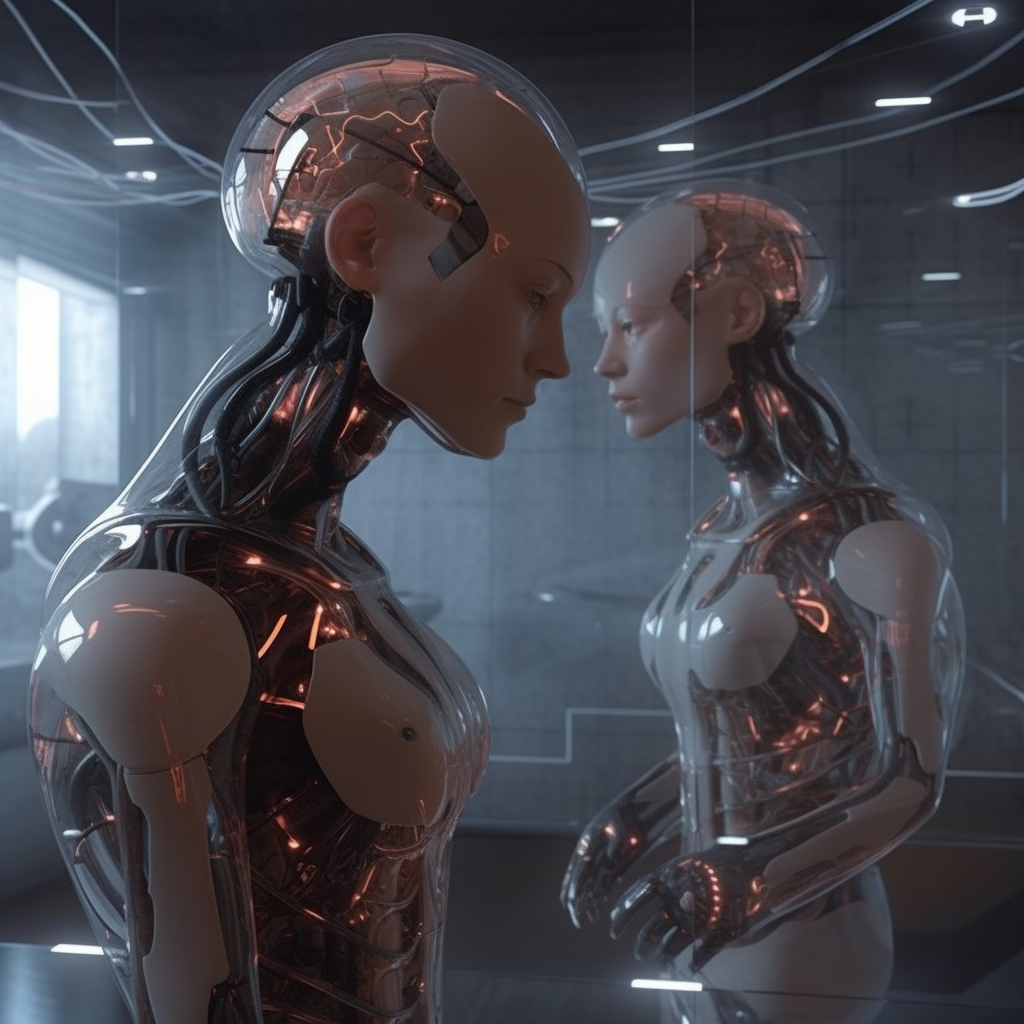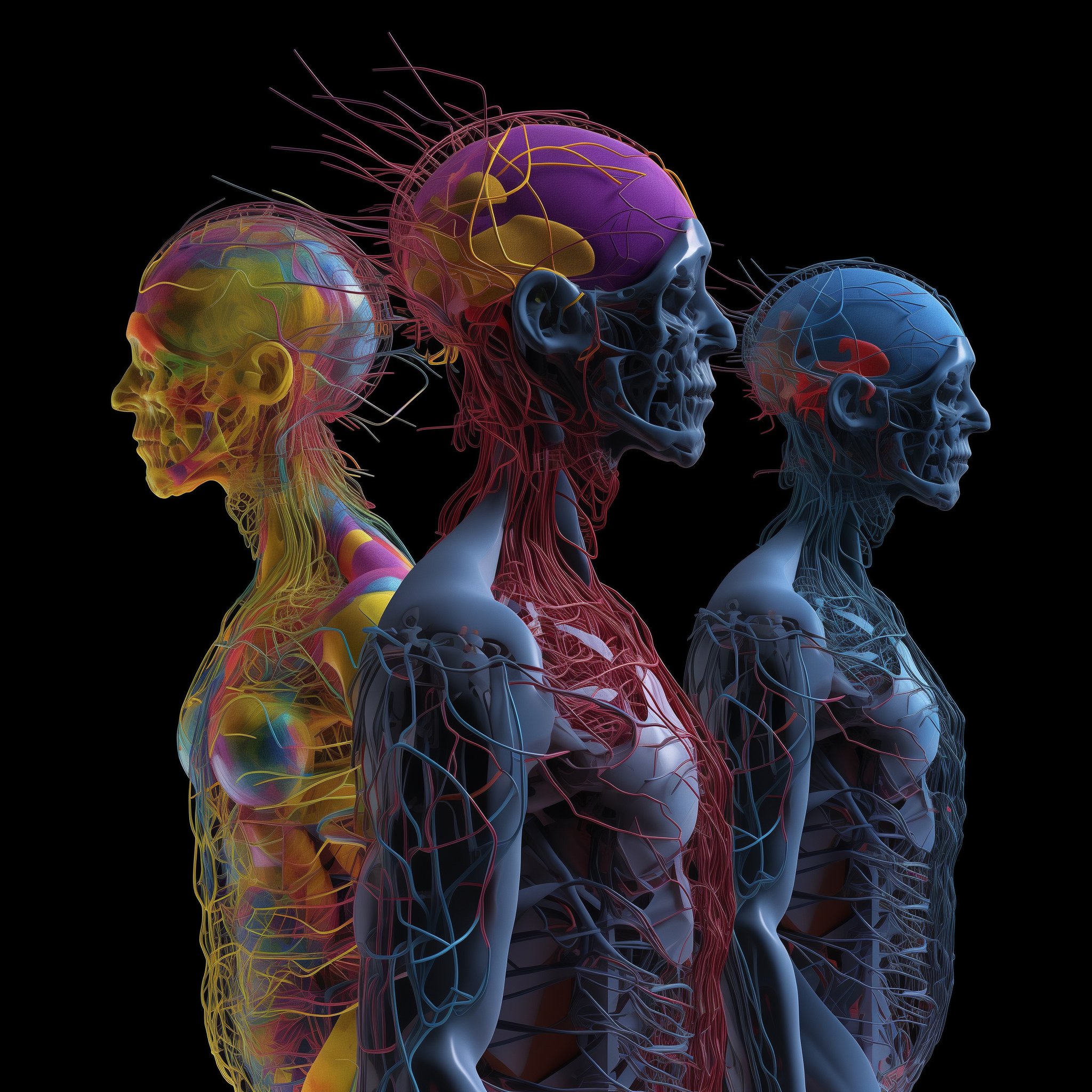Mind the Gap
What do television, human evolution, and checklists have in common?

I. The Shaping Forces: Media, Family, and the Automation of Perception"
In my formative years, the television held me captive. It revealed a multitude of realities. The channels were saturated with the media of previous generations and contained many coded messages that subtly influenced my understanding of the world. American society's caste system is illustrated in Gilligan's Island, war trauma in Hogan's Heroes, and the adjustment to new family values in The Brady Bunch. I grappled with racism through characters like Archie Bunker and George Jefferson. These narratives, though often black-and-white in their depictions, aimed to uncover the gray areas where differing viewpoints could intersect.
Amid this media landscape, I was fortunate to discover The Children's Television Workshop. Creators like Fred Rogers and Jim Henson worked tirelessly to present reality from a child's perspective, fostering empathy, compassion, and critical thinking.
During these years, my father worked as a psychologist at Graterford Prison. He designed a program that facilitated group discussions about the challenges the inmates faced, such as alcoholism and recidivism, aiming to tackle the underlying issues that contributed to their criminal behavior.
Despite his exhausting job, my father would often spend evenings watching television with my brother and me. Perhaps he saw the irony of using a TV as a bonding tool, but it became our ritual. Nowadays, our new version of “television”—namely, the internet—is ubiquitous, always within our reach, on our laps, and in our hands.
Against our full potential, humanity is somewhat hindered, trapped in a cycle of unexamined reactions. This observation inspires me to advocate for a deeper understanding of our automated behaviors. I am gradually formulating the use cases for my 'checklist'.
II. "The Frameworks of Control: Governments, Family, and the Need for a Checklist"
Governments are complex systems, akin to parenting structures, developed to manage everything from taxes to national security. As Noam Chomsky points out, they "operate based on established rules and processes to ensure order and fairness in society." Though the principle of equality may be flawed, the intention to operate with fairness to all levels of society is an aspiration that is to be admired and explored.
After his tenure at Graterford Prison, my father worked at a community health center supporting individuals with disabilities. During this time, he designed a simple tool: a checklist. He listed the principles defining what it meant to be functional, or "normal," in society. What were the most fundamental aspects of living? What constitutes a normal person in the world?
My father was confident that by detailing these actions, he could provide his clients with a greater sense of control. His checklist included everything from routine tasks like brushing one's teeth to comprehending the flow of a typical workday. While he designed these principle-based methods for his clients, they bear wider relevance. Practice shapes our reality and generates new instincts. During my 15-year tenure as a circus ringmaster and director, I witnessed the remarkable metamorphosis achieved through dedicated practice, turning the seemingly impossible into tangible achievements. Gradually, these practices become ingrained in our being, weaving into the fabric of our instincts. As I evolved my work to coaching A-list actors in films like I Am Legend, Star Trek, Thor, and AppleTV's See, I learned to tune the actors to their core instincts and return them to a place of emptiness using a technique that I refined working with the late Antero Alli.
His principle was you have to "break trance to make trance," and the most profound tool in my toolkit was to have the actor attempt stillness. Stillness is impossible as all of the functions of the body are already in motion: the breath, heartbeat, micro-movements in the joints to maintain posture and the nervous system's constant filtering of information to relevance. I learned how to utilize these automatic functions of Nature as a driving force and as a collaborator to help them attain a level of consciousness where they could create their pure responses. I used the discipline of acting to generate new instincts in the actor so that these new choices would become automatic.
The implications are clear: if we allow the habits of society to shape us, our instincts become shaped to society. To attain freedom within our consciousness, we must liberate ourselves from cultural constraints and craft a personal compass to guide our lives. What is our aspiration for mastery? How do we structure our practice to align with our purpose? These questions beckon us to shape our checklist, paving the way for our unique journey of self-transformation.
When viewed from the over-dramatized or over-sanitized lens of television clichés, our definitions of humanity may appear incoherent. We need to establish what functionalities should be included in this "human checklist." Furthermore, it is clear that there is not one universal system, but many that need to be understood and individually defined, especially when the dominant system loses its trustworthiness.
III. "The Extension of Self: Primal Tech, Automation, and the Quest for Self-Understanding"
Automation isn't merely a product of human innovation; it's a principle inherent in nature, guiding evolution and adaptation. We humans, unlike many other mammals, are highly dependent at birth, requiring up to 25% of our lifespan in care and nurturing. This extended dependency is likely necessary for our sophisticated intelligence, which in turn birthed complex systems like government and philosophy.
Moreover, our understanding of automation in nature is rooted in the recognition of multiple systems of time. Just as the cycles of the Earth's rotation mark the rhythm of day and night, humanity has sought to align itself with various natural cycles over the centuries. European Astrology maps the stars' alignments to the Earth, Chinese organ cycles map the hours of a day with organ systems, and the Balinese Wariga maps the character of each day in cycles of 3, 5, 6, 7, 10, and 12 days, which combine to create the dates of the community's religious ceremonies.
Despite this complexity, our bodies are examples of biological automation. They perform numerous automatic functions, from heartbeat regulation to digestion, ensuring our survival. Automation is equally vital in shaping our psychology and social behavior. Our brains recognize patterns and respond to stimuli predictably, which aids in forming habits and routines. Social norms and institutions also rely on automated processes to facilitate cooperation.

Considering these examples, it's evident that automation is not solely a human invention but a fundamental aspect of the universe. These instruments of the body and nature—and the relationship we have to these cycles—I refer to as Primal Tech.
Primal tech illuminates how the root technologies of the body are extended by the technology we create. For instance, consider the AI algorithms that customize our experiences within digital spaces. These systems act as an extension of our cognitive faculties—our interests, preferences, and decision-making. McLuhan asserts, “All media are extensions of some human faculty—mental or physical.”
The current era of automation has ushered in a complex relationship between instinct and technology. Think of the AI assistants orchestrating our daily activities or the automated systems guiding our consumption patterns. These extensions have begun to profoundly shape our lives. In discussing our root automated systems, it's essential to differentiate the 'map' from the 'terrain.' We must identify and acknowledge what is natively us—our inherent faculties and instincts—and what is merely an extension, a product of our imagination and innovation. This discernment aids us in determining what aspects of ourselves to let go of and which ones to evolve, thus bridging the gap between what we perceive and what we authentically understand.
IV: Ginnungagap: bridging nature and automation
In the dawning light of self-awareness, one uncovers the soft hum of the world's machinery—your heartbeat, a secret testament to the grand automation of existence. Breathe in the rhythm of universal ticking, feel the pulse of a thousand invisible gears. Consider the whispers of your own blueprint, etched in the stardust of your flesh, and the echo of your lineage, a symphony written in the script of your cells. Be still, but listen—your soul hums in the key of eternity. Now, in the silent theater of your consciousness, draft your checklist, a testament to your unique cadence in this grand orchestra of existence.
Paradox Pollack was raised in the punk spectacle of Philadelphia theatre, traveled to pursue performance in San Francisco, and founded 2 circuses of over 300 performers there. Ringmaster for 10 years he scripted and directed multiple shows for touring, and opened shows for The Cirque Du Soleil in Las Vegas. In 2005 he entered Hollywood as a creature stuntman in I Am Legend and continues to this day redefining extreme character development for features and television. https://youtu.be/b2VChL7u1O4
A writer of poems and scripts for 30 years, it is only in the last 3 years that his focus has shifted to bringing forth his stories and philosophies to a more developed product.